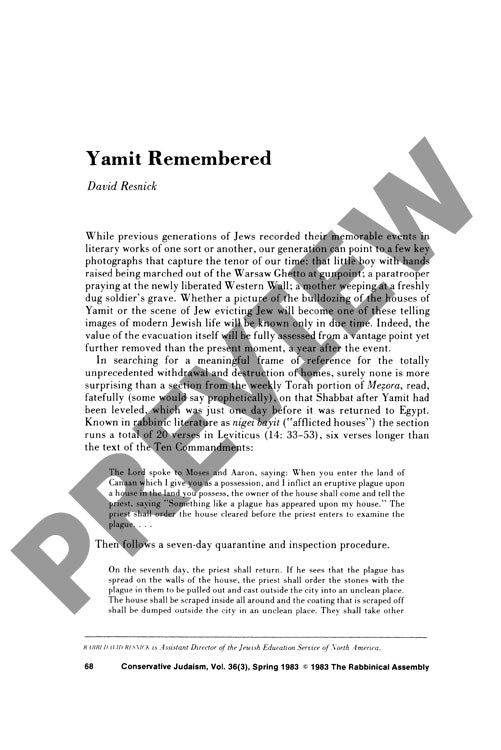Yamit Remembered
Couldn't load pickup availability
When Israeli forces evacuated the settlement of Yamit in 1982, they enacted a drama that eerily paralleled ancient biblical accounts of afflicted houses in Leviticus 14:33-53. Through comparative hermeneutics and midrashic exegesis, striking connections emerge between divinely mandated house destruction and the modern withdrawal from this contested territory. Rabbinic commentaries interpret the biblical plague of houses as divine punishment for stinginess and deception, particularly examining a Tanhuma midrash that links concealment of possessions to forced exposure through structural demolition. Rather than proposing definitive political interpretations, the analysis explores multiple readings of both the ancient text and modern events, questioning whether Israeli actions constituted the "stinginess" and "deceit" described in rabbinic literature. The study concludes that the Yamit evacuation potentially demonstrated Israeli willingness to sacrifice even homes for peace, contradicting accusations of intransigence. The evacuation images might ultimately represent mutual Jewish respect rather than internal animosity, drawing hope from the biblical promise of eventual cleansing and restoration. This interdisciplinary approach demonstrates how traditional Jewish textual interpretation can illuminate contemporary political and ethical dilemmas.

More Information
-
Physical Description
-
Publication Information
Published 1983
ISBN
-
Publication Credits
David Resnick

